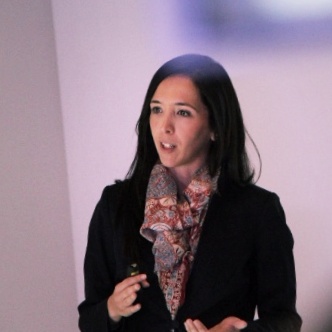Why are linear careers still perceived as more valuable?
The movie Hidden Figures got me thinking. I was deeply moved by Katherine, the protagonist, who led an impressive and linear career at NASA.
She was born with a brilliant mind for numbers and geometry. She had a natural talent.
How many of us have this divine enlightenment to know at an early age what we are meant to do for the rest of our lives?
There are other kinds of linearity. For instance if you discovered your passion after a couple of years at university, stuck with it, had a great career development, you now enjoy the fruits of it. That’s really great and it should be appreciated.
Linear careers were considered valuable a few generations ago. Time has passed, the world is a different place today than it was back then.
According to a Canadian study by NGen Performance from 2009 about career expectations: “while the largest percentage of Traditionalists and Baby Boomers (25% and 20% respectively) said they expect no career change, Gen Xers and Gen Ys (19% and 24%) indicated that they expect to have three career changes. And for those who expect to have four career changes in their lifetime, Gen Xers were the largest percentage of respondents (11%).”
Furthermore since the 90s with the rise of private internet this situation has dramatically changed. Deep knowledge of an infinite number of topics became easily accessible. And now with online university courses and seminars such as Coursera, you can even learn a new profession from home.
I truly believe linear is not the only or better way to lead a professional life. Not to be misunderstood here: I am not against linear paths. I am not for non-linear careers either. My campaign is in favour of open-mindedness.
Throughout my life I had the chance to meet very interesting people in different countries. I got to know impressive folks who had a deep knowledge in their specific fields. People who learned a lot by doing without having gone to university. Others who simply didn’t want to grow professionally and chose to do the minimum necessary to make ends meet.
My premise is: all the ways are valid and valuable.
With this article I intend to acknowledge those who think they are lost just because they didn’t find the one path in their professional lives. Those who had different jobs, titles and roles along their way. Those who believe that their peers fare much better just because they made linear choices.
Months ago at The School of Life, an institute which gives philosophy seminars in Berlin, I met a lady in despair. She told me that she didn’t trust herself for any job, even though she held a good position at a start-up company.
Later I understood that her issue was about comparing herself with friends who had a crystal clear direction of their next move and stuck with the same topic, field, industry or market.
She had had a number of different jobs and roles. She had learned a lot and saw a wide range of businesses from various perspectives. She had a portfolio of cross industry and cross country insights, best practices and great horizontal knowledge that could be applied successfully to any company.
Nevertheless she felt these skills were not recognised. Instead she felt guilty for not being loyal to one industry or type of business. She felt it was all in vain.
That evening I wish I had told her how interesting she was. Perhaps I didn’t have enough time or I just felt shy. I had no intention to give her a lecture based on my biased and maybe naive, open minded way of seeing the world.
These lines are my only chance to make it up to that lady.
A little seed I intend to plant in this network. Perhaps a strike of light in the end of the tunnel for those who are amazingly lost in non-linear richness of knowledge.


I would agree that both career development approaches are equally viable und valuable. I also believe that especially larger, more traditional companies are still biased towards linear careers and hire respectively. But based on experience with different large scale companies and their recruiting procedures, I do see a shift in perspective even here (at least in some areas). Companies in general find it difficult to find right candidates for open jobs (esp. X & Y generation) and need to re-consider overcome principles. Linear careers and in depth knowledge in a specific area is much less of an asset in a rapid changing world (except maybe for selective expert roles). Having strong cognitive abilities and a high level of curiosity is much more critical. Candidates that have gone through a journey of different job roles, companies, industries and have also experienced some ups and downs on this way are much better qualified when confronted with new, complex problems or unknown challenges. Also education should rather focus on conveying capabilities to structure, analyse and solve complex problems, whether this is within physics, social study, business, mathematics, psychology, theology or any other are is irrelevant. Expert knowledge will matter less and less in future…
Being more of a generalist myself I love to talk to and learn from associates with linear careers and in-depth knowledge in a specific area but when it comes to hiring I definitely prefer non-linearity in terms of background, work experience and education.
Thanks for bringing in your point of view, really appreciated. A “high level of curiosity” is exactly what our market needs to survive. The jobs of the future cannot be learnt today. Nobody knows how the job market will look like in the medium term future. It is hard to predict which skills we will need, thus an open mindset and willingness to keep learning are essential for every professional. Let’s keep our discussions ongoing, love it!